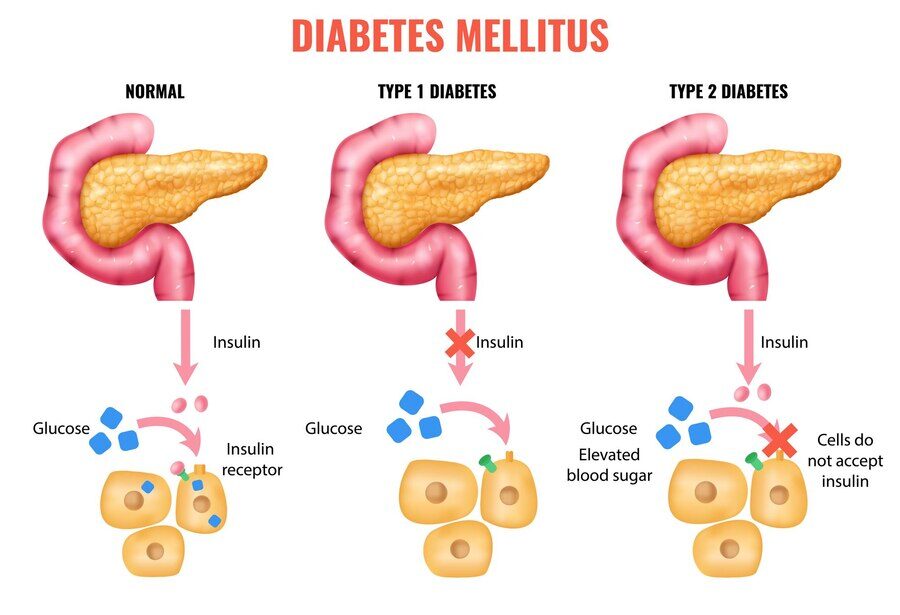Exploring the connection between gut health and insulin resistance reveals intriguing possibilities for managing diabetes. A balanced gut microbiome can influence how our bodies process insulin and glucose. Good bacteria in the gut can improve insulin sensitivity, helping to reverse insulin resistance. Conversely, an imbalance, often caused by poor diet or stress, can exacerbate insulin resistance. By incorporating a diet rich in fiber and probiotics, we can support a healthy gut, potentially improving our body’s ability to regulate blood sugar and insulin levels effectively.
Understanding Insulin Resistance
Insulin resistance occurs when the body’s cells become less responsive to insulin, a hormone crucial for regulating blood sugar.

This condition often leads to higher blood sugar levels and can be a precursor to type 2 diabetes. It’s influenced by various factors, including genetics, lifestyle, and diet. Insulin resistance disrupts the normal glucose uptake into cells, resulting in elevated blood sugar levels. Understanding this process is crucial for addressing how gut health may impact insulin sensitivity and overall metabolic function.
Insulin resistance is a metabolic condition where the body’s cells become less responsive to insulin, the hormone responsible for regulating blood sugar levels. When insulin resistance occurs, glucose, which is supposed to enter cells for energy, builds up in the bloodstream instead. This results in elevated blood sugar levels, which can eventually lead to type 2 diabetes if not managed properly.
The Gut Microbiome’s Role
The gut microbiome, a complex community of microorganisms in the digestive tract, plays a vital role in maintaining metabolic health. These microbes help digest food, produce essential nutrients, and regulate inflammation. An imbalance in gut bacteria can disrupt these processes and contribute to insulin resistance. By supporting a diverse and healthy microbiome, we can enhance our metabolic functions and potentially reverse insulin resistance.
The gut microbiome, a diverse community of microorganisms residing in the digestive tract, is essential for overall health and plays a crucial role in regulating metabolism. These microorganisms help break down food, synthesize vitamins, and maintain the gut lining. A balanced microbiome supports healthy digestion and absorption of nutrients, which can impact metabolic processes, including insulin sensitivity. When the gut microbiome is out of balance, often referred to as dysbiosis, harmful bacteria can proliferate, leading to increased inflammation and metabolic disturbances. This imbalance has been linked to insulin resistance and other metabolic disorders.
How Diet Affects Gut Health
Diet has a profound impact on gut health and, consequently, insulin resistance. Foods rich in fiber, such as fruits, vegetables, and whole grains, promote the growth of beneficial gut bacteria. On the other hand, a diet high in processed foods and sugars can lead to gut dysbiosis, where harmful bacteria outnumber beneficial ones. This imbalance can worsen insulin resistance. Therefore, a diet focusing on gut-friendly foods can be a key strategy in managing and reversing insulin resistance.
Diet profoundly influences gut health, which in turn affects overall metabolic function, including insulin sensitivity. The types of foods we consume shape the composition and diversity of our gut microbiome. Diets high in fiber, found in fruits, vegetables, legumes, and whole grains, promote the growth of beneficial bacteria, such as Bifidobacteria and Lactobacilli. These bacteria help maintain a healthy gut environment, support digestion, and regulate inflammation. On the other hand, diets rich in refined sugars, saturated fats, and processed foods can lead to an imbalance in gut bacteria, favoring harmful strains that contribute to gut dysbiosis. This imbalance can increase inflammation, impair gut barrier function, and worsen insulin resistance.
Probiotics and Insulin Sensitivity
Probiotics, beneficial bacteria found in fermented foods and supplements, can positively influence gut health and insulin sensitivity. Research shows that certain strains of probiotics can improve metabolic markers and enhance insulin response. They work by reducing inflammation and supporting a healthy gut barrier. Incorporating probiotic-rich foods like yogurt, kefir, and sauerkraut into your diet might help improve insulin sensitivity and overall metabolic health.
The Impact of Stress on Gut Health
Chronic stress can negatively affect gut health, leading to an imbalance in gut bacteria and increased inflammation. This imbalance can contribute to the development of insulin resistance. Stress can alter gut motility and permeability, impacting nutrient absorption and metabolic processes. Managing stress through techniques like mindfulness, exercise, and adequate sleep is essential for maintaining a healthy gut microbiome and supporting insulin sensitivity.
Chronic stress can wreak havoc on gut health, leading to significant imbalances in the gut microbiome and contributing to various health issues, including insulin resistance. When we’re stressed, the body releases hormones like cortisol, which can disrupt the balance of gut bacteria and increase gut permeability. This means that harmful substances might leak into the bloodstream, triggering inflammation and negatively affecting metabolic processes. Stress can also alter gut motility, causing symptoms like bloating, constipation, or diarrhea.
Practical Steps for Gut Health Improvement
Improving gut health to address insulin resistance involves several practical steps. Start by incorporating a balanced diet rich in fiber, prebiotics, and probiotics. Reducing processed foods and sugars is also crucial. Regular physical activity, adequate hydration, and stress management can further support gut health. Monitoring and adjusting lifestyle habits based on individual needs can create a supportive environment for reversing insulin resistance and enhancing overall well-being.
Conclusion
Understanding the connection between gut health and insulin resistance is crucial for those seeking to reverse this condition naturally. By nurturing a healthy gut microbiome, individuals can significantly improve their insulin sensitivity, leading to better blood sugar control and overall health. Adopting a balanced diet rich in fiber, probiotics, and prebiotics is a key step in this process.
For those in San Marcos, CA, Dr. Shumard offers expert guidance on improving gut health as a foundational approach to managing and reversing insulin resistance. Prioritizing gut health could be the turning point in your journey toward better health.